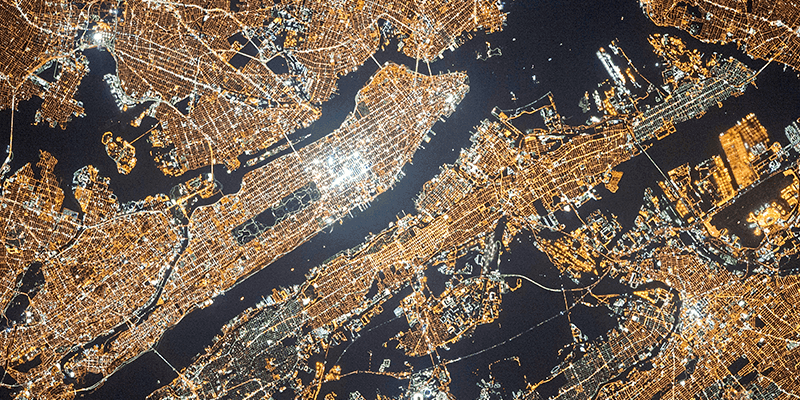Location-tracking systems are set to transform our lives even further. But safeguards will be needed, says Edmund Gair

In 2004, when geographical data first began to be submitted to the OpenStreetMap project, we could say that the general public first became aware that there was such a thing as mapping technology. People also came to believe that they could use Google Maps for any kind of location-related information.
However, there is a whole sector that has been constantly and quickly emerging behind this user-friendly, ideal functionality – geolocation. Location-tracking systems have opened up a whole new dimension in other industries including travel, retail, marketing, real estate, home automation, autonomous transport and gaming. The retail sector will need to use geolocation for a revised delivery method or for location-based marketing; gaming businesses will develop enhanced location-based games; the travel industry will need to adjust to an even more informed and “immersed” passenger.
Autonomous transport
Connected or autonomous cars are quite the talk of the town – because laypeople can now see the results of years of research, work and investment. It will be crucial in the coming years that location technology can rely on mapping systems created especially to support autonomous driving. Digital maps will eventually be developed to a higher standard of accuracy and refinement.
The difficulty lies in getting in-car learning systems to adjust to the constantly shifting road conditions. Since maps can be updated almost in real time, turning the largest geospatial resource – OpenStreetMap – into a platform that anybody can use could be a key step in obtaining higher precision.
On the one hand, programmes such as Telenav’s Scout are collecting probe data to keep enhancing the information in OpenStreetMap. On the other, car manufacturers such as BMW are working continuously to improve their road experience management by crowdsourcing real-time data from the roadways. Real-time maps will give more accurate information about weather and car park availability, as well as traffic and other risks.
Smart homes
The goal of the linked vehicle and smart home industries is to integrate our homes and cars into one functional whole – in other words, the household can be handled and controlled while driving, and that the functions of the car can be changed while relaxing at home. A house will be able to detect the presence of its owner’s car within a specific area thanks to geofencing technology. The sensors will turn on home items such as the refrigerator or the lighting system once they recognise this vicinity.
Going beyond smartphone integration
Navigation experts point to industry efforts being focused on integration with other wearables, given that integration with smartphones has already been extensively explored and implemented.
For instance, new mapping and location research will have a significant impact on the development of smart glasses. Smart glasses are predicted to help the blind navigate unfamiliar spaces by detecting nearby objects and movement. When smart glasses are ready for widespread adoption, they will significantly improve the lives of everyone since they will put real-time content right in the wearer’s ear or field of vision. This information will be gathered from real-time data that mapping software provides.
The Internet of Things
The IoT philosophy of making all the appliances and equipment we use every day more connected has given rise to all the wearable technology we now take for granted. The most well-known examples here are drones and ride-sharing services. IoT devices must have a real-time update mechanism and exact location data about their users (akin to a mapping layer) for this to happen.
Real-time maps created specifically for a given product or group of items will serve as the foundation for machine-to-machine communication. For instance, mapping software providers are attempting to make it easier to track UAV flights, which will ultimately increase the market opportunities for flying cars.
Perfecting healthcare
Technology can actually change things in the healthcare sector. Software engineers are now developing real-time location systems with the goal of hospitals and healthcare facilities being able to provide better responsive treatment by using the real-time
locations of all staff, assets and patients. Other benefits include improved departmental workflow, financial savings from better resource management, improved infection control and higher clinical quality. These will be accomplished by installing position sensors that make use of distinctive IDs arranged in accordance with precise tags that can be quickly verified in real time.
Higher entities
Real-time location technology is predicted to be extensively used by the eCommerce industry. This implies that the private economic sector will use information about the location of goods and potential customers. Additionally, businesses will even work together on government programmes. Real-time location sharing will only be used with the consent of the potential customer, which calls into question the legitimacy of these organisations’ control over public data. Self-reported data and geoanalytics will ultimately help develop more effective delivery methods.
The security challenges of real-time data
The largest problem that still has to be resolved is how to prevent data breaches that could endanger people’s safety, both online and offline. Devices connected to the IoT use positioning systems, which suggest numerous parties. Clear protocols and policies are required for this interaction, which will soon be further established. But once the device policies are in place and have been modified in light of actual use scenarios, this can only be achieved “on the fly”.
In conclusion, real-time mapping and location technology offers promising futures, but it will be some time before distinct lines are drawn and users’ privacy is fully safeguarded.
Edmund Gair is co-founder of Viatick Pte (www.viatick.com)


